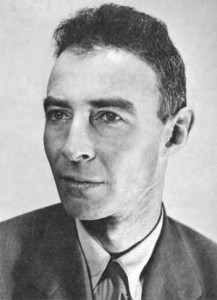Laurence Inman on biographers, biographies and a number 17 bus.
I’m a bit suspicious of biographers.
There seems in recent decades to have been a lot more of them about than there used to be, when they probably weren’t called biographers, but were just very close to an accomplished person they admired, and everyone else admired, and they thought ‘People might be interested in all the stuff I know.’
Think James Boswell and Elizabeth Gaskell.
I don’t think much of the idea of professional biographers. I mean, what qualifies them? Eh? Who puts them up to it? Are they all in it together? Do they meet up every Wednesday lunchtime in The Biographers’ Arms and compare notes?
‘I see Antonia got the Emily Bronte job.’
‘Did she ? I hope she makes a better job of it than Peter did with Disraeli.’
‘Oh, bound to. What are you up to at the moment?’
‘Trying to get to grips with Noel Edmunds.’
‘Blimey.’
‘I know. No kudos, but plenty of dough.’
‘Talking of kudos, I ended up with five ‘magisterials’ and a round dozen ‘definitives’ for my three-volume Tommy Trinder.’
Only two biographies published in the last twenty-five years are worth reading again: Albert Speer: His Battle With Truth by Gitta Sereny and Ludwig Wittgenstein: The Duty Of Genius, by Ray Monk.
I’ve always felt an attachment to Wittgenstein, ever since I chose him as my Special Author in my final year at university. And then, one day in 1973, as I was sitting on the top deck of a number 17 bus on my way over the tops to Rochdale, sucking on a Park Drive, I had a thought which was identical to one Ludwig had in the Tractatus. (It’s at 6.41 if you’re interested.) Wittgenstein said this would happen in his preface.
Now there are three good biographies in the world, and Ray Monk is again responsible.
 Inside The Centre: The Life Of J. Robert Oppenheimer (Cape, £30) is over 800 pages long. I am unlikely to have an Oppenheimeresque insight on the top of the 17 bus, or any other bus, because particle physics, quantum mechanics and the like, come in a language so remote, so beyond the gravitational pull of my puny intelligence, that it would be quicker to teach my dog Contract Bridge.
Inside The Centre: The Life Of J. Robert Oppenheimer (Cape, £30) is over 800 pages long. I am unlikely to have an Oppenheimeresque insight on the top of the 17 bus, or any other bus, because particle physics, quantum mechanics and the like, come in a language so remote, so beyond the gravitational pull of my puny intelligence, that it would be quicker to teach my dog Contract Bridge.
Oppenheimer’s background was several layers of social strata above mine. (Wittgenstein’s several more.) The only solid thing I knew about him was that he led the team which developed the first atomic bomb. I recalled a clip of film from the sixties, a pale, pained man, staring into the camera, intoning lines from the Bhagavad-Gita as footage of the Hiroshima bomb unfolds.
And yet every sentence of this book fascinated me. I put it down only to make tea, grab an hour’s sleep or because I wanted to prolong its hypnotic pleasure. This was a man who changed everything, for all of us, but who was at the same time so socially inept, so emotionally fragile, that in his teens and early twenties he made three attempts to kill people, for ‘motives’ which in court would most charitably be described as flimsy.
I could quote pages, but it would only deprive you of the joy of discovery. Go out, now, and get a copy.
Ray Monk was almost born a Brummie. Despite this I’m putting him forward for Honorary Brummieship status. So Ray, if you’re reading this, and you told me you would, the papers should be arriving soon. And you can be certain that Inside The Centre will never follow my Ackroyds, my Holroyds and my Motions on the sad trek down to the Oxfam shop.


